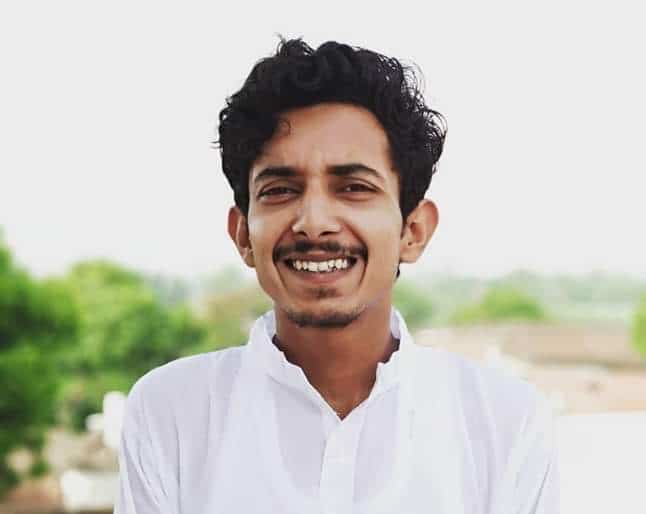
Manner of Sharjeel’s detention and arrest is no new episode in the rouge reality of Muslim youth in India. “Every Muslim teenager is obligated to inform their family that they were safe after Batla house encounter” – Usmani would say making his routine call to Ammi. His abduction and police denial justified his understanding of hostilities defaulted for a Muslim in UP. The arrest is against the guidelines of the Supreme court and violation of CrPC provision, Article 22(1) of Constitution of India. Numerous calls were made to police with pleas for minimum consolation. Amidst police denial, right-wing media made reports creating uncertainties. UP police made sure hundreds of his friends experienced their vendetta in extreme distress. Words broke when Tariq Usmani Sharjeel’s father ultimately called to inform ‘he is safe’.
For Sharjeel the wrath of the state was inevitable because of his quest for the understanding of the value of minorities in India. Booked under many bogus charges including attempt to murder, Sharjeel was prey for Uttar Pradesh police since December last year. From Babri verdict onwards Sharjeel, aligned with a new breed of Muslim politics, started to loom a movement which out broke with the anti-Muslim citizenship amendment last winter. Sharjeel and other students had to keep their life at risk for the uprise when police broke into the Aligarh Muslim University on the night of December 15. He fled from Aligarh and wandered across the nation sprouting imaginations about dignified existence for the oppressed. His stories and his in-depth clarity of Muslim history earned him friends from all corners. From a brilliant scholar to a successful organiser, the 23-year-old had the capabilities to lead. Whenever he started with ‘not so popular opinion’ he made sure he had clarity and concrete ground for his argument. Shifting the dream of being a journalist to an influencing scholar, he became both.
Usmani’s resistance looked beyond the electoral defeat of BJP. He spoke against the anti-Muslimness inherited in the nation-building. He would narrate the days of partition in Aligarh as lived experience. Like his friend Sharjeel Imam, Usmani came on the streets with his knowledge and started to educate on roads and junctions making him a threat to even Muslim leaders with convenient politics. Their spearheaded criticism makes hurted both the state and the established opposition. Sharjeel came with a new dimension to politics in India. He argued that nationalism and ultra-nationalism are not opposite sides, pointing at the contributions of Congress party in Indian Islamophobia. The generation Sharjeel could be compared to the historic decade of the 1960s for the Black movement in America. When James Baldwin counts Malcolm X, Martin Luther King jr and Medger Evers standing tall and becoming the voice of the oppressed black community, Sharjeel and his friends are reenacting a similar momentum for Muslims in 2020.
Sharjeel is not victim of random selection of Muslim youth which renews the perceptions of minorities as terrorist and anti-social. Sharjeel troubled the state and cracked the concealed truth which was never spoken in public space. Imagination of boundaries and nationalism didn’t stop him from standing on the side of the oppressed. Although he is just in his early twenties, Sharjeel have become a notable researcher on ethnic violence in India. He worked on various platforms to document Islamophobia in India and dedicated his social handles to flag and fight everyday fascism.
He was aware of the vilifying campaign against him and prepared for the repercussions. Since his graduation days in AMU, his spearheaded criticism made him a target. His social media post in favour of Delhi pogrom shooter, Sharukh Pathan, was flagged by Opindia and right-wing groups recently. Usmani retaliated with a well-drafted opinion, citing a reference from historic judgements. Opindia made defamatory statements against Sharjeel in their articles which made him a victim of cyberbullying from right-wing groups. His popularity and contributions must have been a motive behind the abrupt arrest and hostility from police.
Sharjeel’s fight always installed social justice at the centre of the debate. The rise of a Muslim intellectual with dynamic potential is a nightmare for the Modi regime. He took multiple roles in the greatest challenge towards Modi in six years, making him an irreplaceable part of the movement. Political differences to him have to take a back seat as his arrest and negligence to his absence could alter the collective aspirations of the oppressed. The shadows of the bloodshed valley of Kashmir have started to sweep into the reality of Northern plains. Killing and kidnapping its minorities, fascism from Hindutva forces puts Muslims on the doorstep of a genocide. The value of freedom of Sharjeels in this last stand has a crucial significance.



